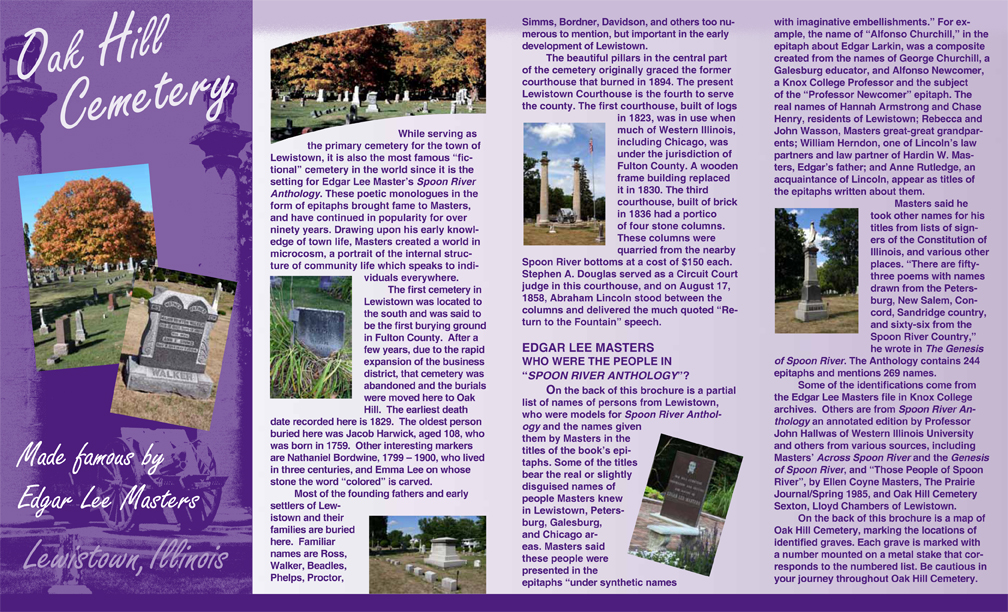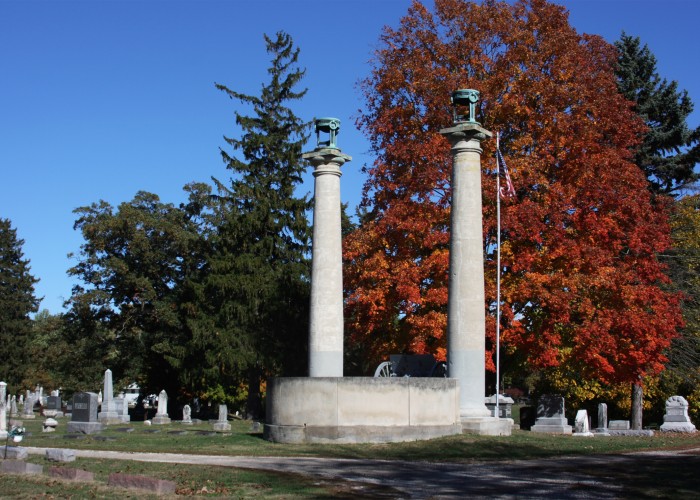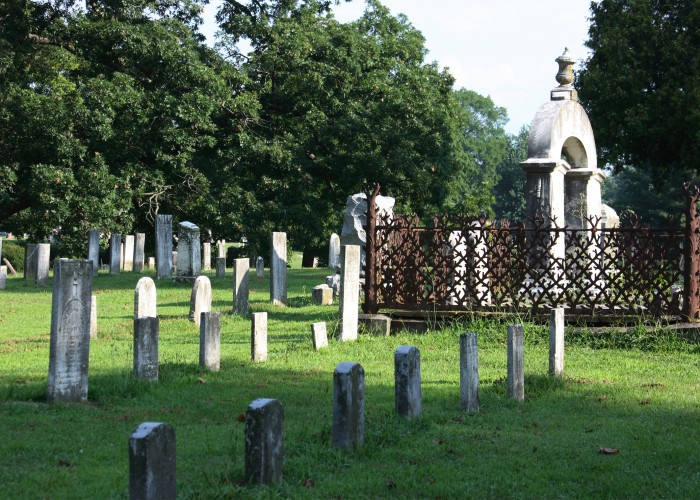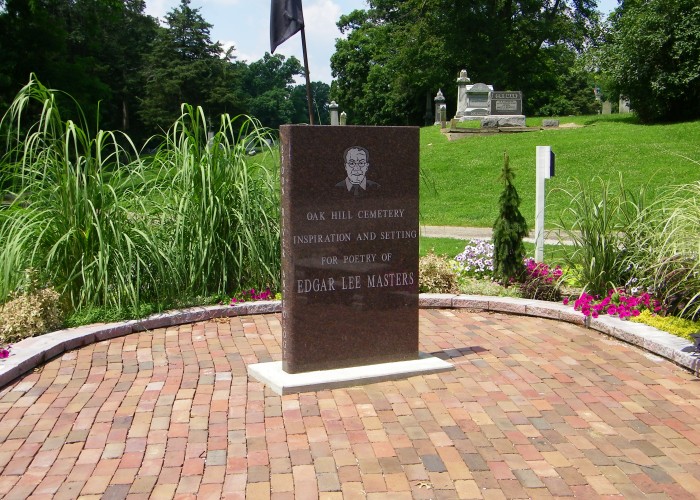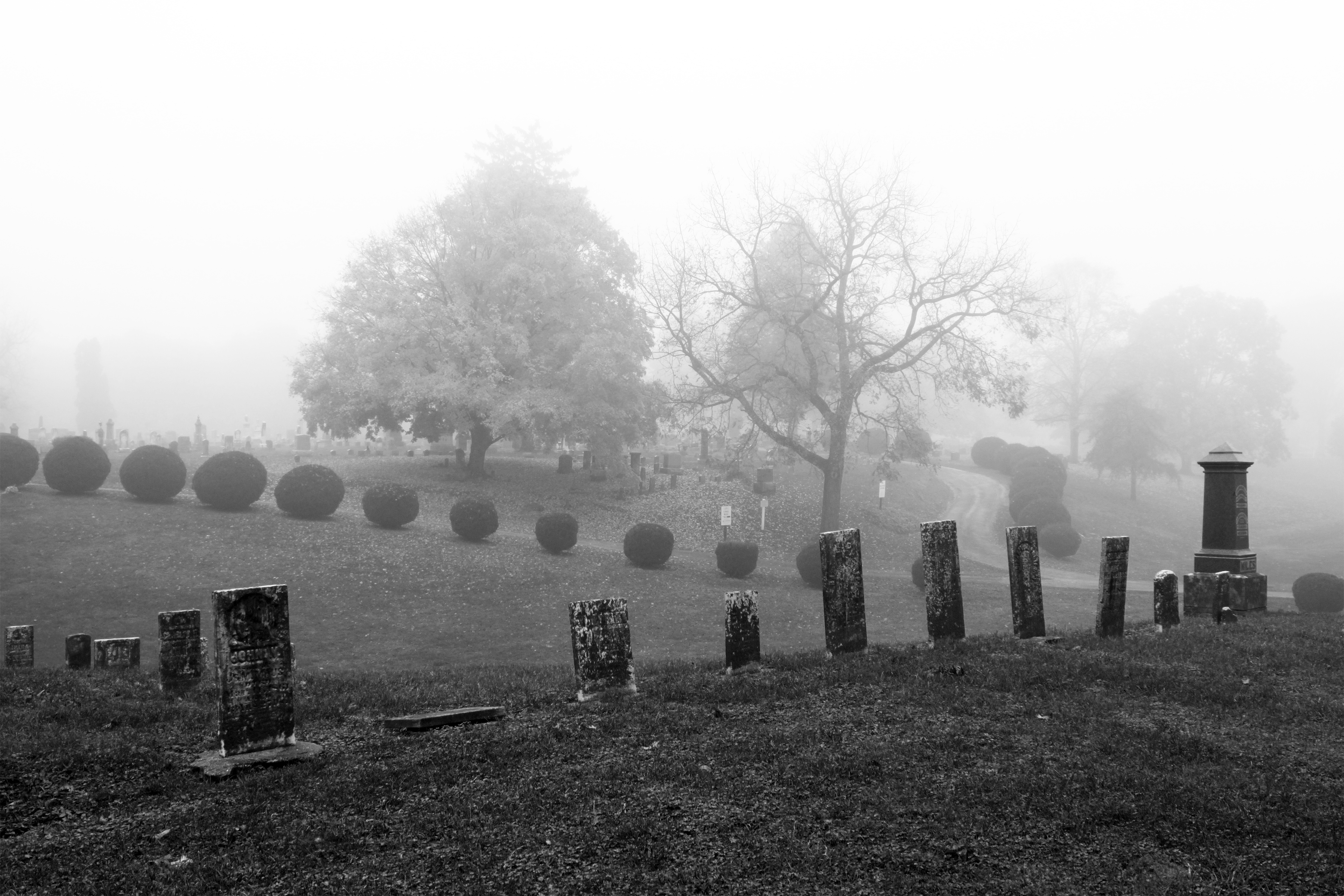While serving as the primary cemetery for Lewistown, it is also the most famous “fictional” cemetery in the world since it is the setting for Edgar Lee Master’s Spoon River Anthology. These poetic monologues in the form of epitaphs brought fame to Masters, and have continued in popularity for over ninety years. Drawing upon his early knowledge of town life, Masters created a world in microcosm, a portrait of the internal structure of community life which speaks to individuals everywhere.
The first cemetery in Lewistown was located to the south and was said to be the first burying ground in Fulton County. After a few years, due to the rapid expansion of the business district, that cemetery was abandoned and the burials were moved to Oak Hill. The earliest death date recorded here is 1829. The oldest person buried here was Jacob Harwick, aged 108, who was born in 1759. Other interesting markers are Nathaniel Bordwine, 1799-1900, who lived in three centuries, and Emma Lee on whose stone the word “colored” is carved.
Most of the founding fathers and early settlers of Lewistown and their families are buried here. Familiar names are Ross, Walker, Beadles, Phelps, Proctor, Simms, Bordner, Davidson, and others too numerous to mention, but important in the early development of Lewistown.
The beautiful pillars in the central part of the cemetery originally graced the former courthouse that burned in 1894. The present Lewistown Courthouse is the fourth to serve the county. The first courthouse, build of logs in 1823, was in use when much of Western Illinois, including Chicago, was under the jurisdiction of Fulton County. A wooden frame building replaced it in 1830. The third courthouse, built of brick in 1836 hat a portico of four stone columns. These columns were quarried from the nearby Spoon River bottoms at a cost of $150 each. Stephan A. Douglas served as a Circuit Court judge in this courthouse, and on August 17, 1858, Abraham Lincoln stood between the columns and delivered the much quoted “Return to the Fountain” speech.
